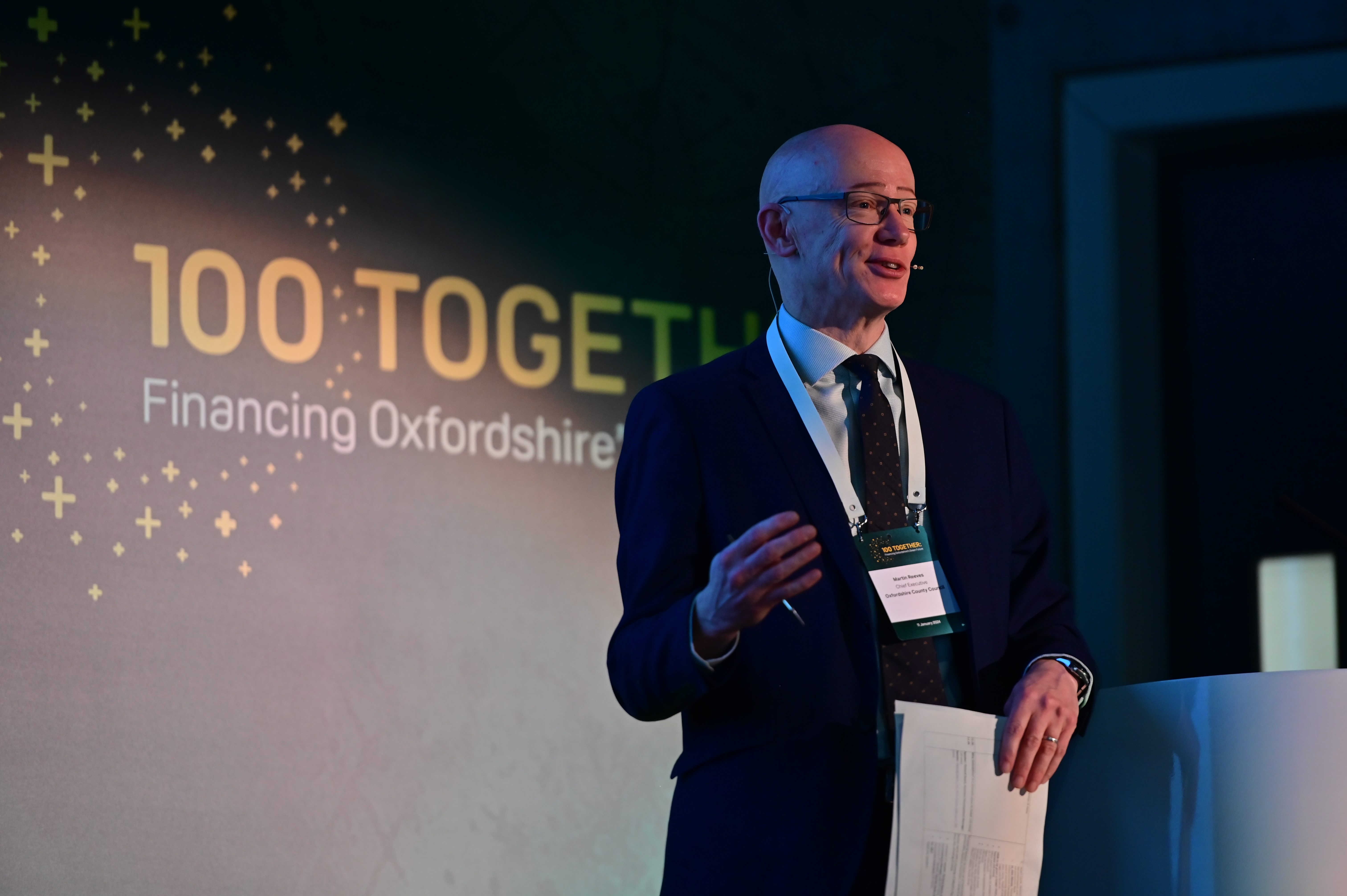
Martin Reeves at the 100 Together conference
We have just hosted our first conference, 100 Together, to look at how we can finance a green future for Oxfordshire.
It was, we believe, the first time a local authority has organised an event of this nature bringing together leading academics, practitioners, politicians, policy makers, funders and financial institutions who understand that we are facing an existential threat due to climate change.
It highlighted the massive opportunities that are available if we think differently about how we can finance a just, safe, and fair transition by grabbing those opportunities as quickly as we possibly can.
There is no doubt that the size of the challenge in front of us, both now and in the future, cannot be solved by the current finance mechanisms. The funding processes that are available to us now will not be able to deliver against the challenges that we face, or the emerging opportunities to embrace new technologies and open-up new sectors and supply chains. This could be everything from local projects and community-led and owned initiatives, through to green infrastructure and energy projects of regional and national significance.
Therefore, we have got to think very differently and positively disrupt the markets status quo and consider how we can collaborate in fundamentally different ways to those of the past, locking in a re-imagined cocktail of financing and funding.
100 Together has started to stimulate a very different view of how this could be possible. We believe Oxfordshire can be the place that we can start to have very different conversations and, more importantly, turn those conversations into action.
Radical reform of the finance model can clearly only happen as a collaboration and a partnership between local authorities, regional government, central government in all its forms, the private sector, communities, and the voluntary sector.
Opening up new ways of creating the financial headroom means moving away from the existing rules and models of return on investment. It will require the government to work with us on policy to create freedoms for us to be able to deliver that very different, sustainable future – funded and understood very differently from the past.
These challenges are being faced by public sector decision-makers already – understanding the kind of projects and initiatives that are currently in place, whether they be energy, retrofitting buildings, or active travel and transport schemes. We all need to learn how we can scale those up at one level, but also think about how we can connect our communities at the local level.
Funding will clearly always need to focus on the requirements of a place. However, there are lessons that can be learned from across the globe about what has worked, and what hasn't worked. Perhaps audaciously, we see this as becoming the ‘Davos’ equivalent for green financing, where leaders from across the world convene annually in Oxfordshire to hold each other to account to shift the dial.
Learning from the places around the world but based on what we know and our own expertise, is the ambition that we have for our people and communities both now and in the future.
Let's be clear. This is a leadership challenge globally, nationally, regionally, locally and even down to the hyper-local community level.
This is about us understanding our roles as leaders, but also lobbying and influencing policymakers – those who are responsible for the kind of finance that's required and creating the frameworks we need to deliver this change with and for future generations.












